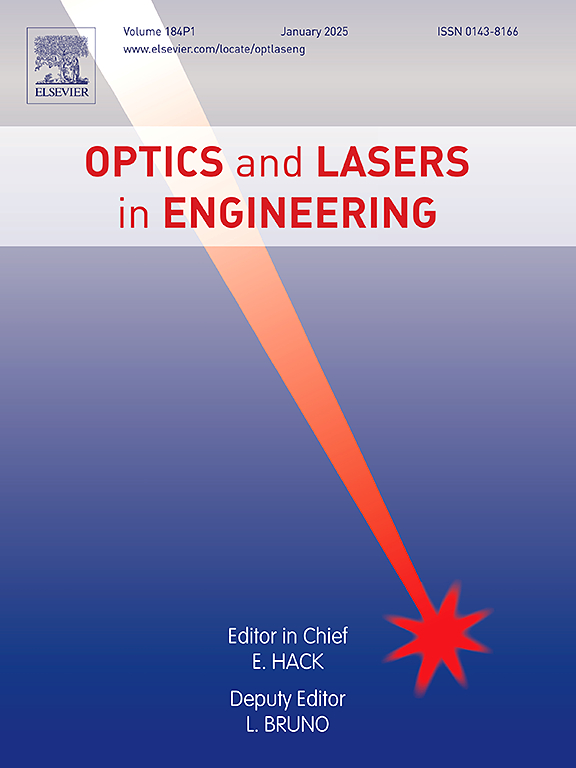Experimental method for internal deformation measurement of 3D solids with embedded cracks based on 3D printing and digital speckle techniques
IF 3.5
2区 工程技术
Q2 OPTICS
引用次数: 0
Abstract
Quantification of the internal deformation of fractured solids such as rock masses under external loads, especially the deformation around internal fractures, is crucial for understanding and predicting the failure of fractured solids. However, it is very difficult to achieve the goal using conventional experimental methods. In this study, we proposed a novel internal deformation measurement method based on three-dimensional (3D) printing and digital speckle techniques. The 3D printing technology was applied to fabricate a 3D transparent model with an embedded elliptical crack and to set a speckle pattern on the internal section of the transparent model. The digital image correlation (DIC) method was used to determine the internal deformation field of the 3D fractured model. The measured displacements and strains of the internal sections in the fractured model were compared with the numerical simulation results. The comparison indicates that the proposed experimental method can well determine the deformation inside the 3D model. This built-in speckle method can realize real-time observation of the internal deformation of a 3D solid model in a non-contact and non-destructive manner.
基于三维打印和数字斑点技术的嵌入裂缝的三维实体内部变形测量实验方法
量化岩体等断裂固体在外部载荷作用下的内部变形,尤其是内部裂缝周围的变形,对于理解和预测断裂固体的破坏至关重要。然而,使用传统的实验方法很难实现这一目标。在本研究中,我们提出了一种基于三维(3D)打印和数字斑点技术的新型内部变形测量方法。我们利用三维打印技术制作了一个内嵌椭圆裂纹的三维透明模型,并在透明模型的内部设置了斑点模式。采用数字图像相关(DIC)方法确定三维断裂模型的内部变形场。测量到的断裂模型内部截面的位移和应变与数值模拟结果进行了比较。比较结果表明,所提出的实验方法能很好地确定三维模型内部的变形。这种内置斑点法能够以非接触、非破坏的方式实现对三维实体模型内部变形的实时观测。
本文章由计算机程序翻译,如有差异,请以英文原文为准。
求助全文
约1分钟内获得全文
求助全文
来源期刊

Optics and Lasers in Engineering
工程技术-光学
CiteScore
8.90
自引率
8.70%
发文量
384
审稿时长
42 days
期刊介绍:
Optics and Lasers in Engineering aims at providing an international forum for the interchange of information on the development of optical techniques and laser technology in engineering. Emphasis is placed on contributions targeted at the practical use of methods and devices, the development and enhancement of solutions and new theoretical concepts for experimental methods.
Optics and Lasers in Engineering reflects the main areas in which optical methods are being used and developed for an engineering environment. Manuscripts should offer clear evidence of novelty and significance. Papers focusing on parameter optimization or computational issues are not suitable. Similarly, papers focussed on an application rather than the optical method fall outside the journal''s scope. The scope of the journal is defined to include the following:
-Optical Metrology-
Optical Methods for 3D visualization and virtual engineering-
Optical Techniques for Microsystems-
Imaging, Microscopy and Adaptive Optics-
Computational Imaging-
Laser methods in manufacturing-
Integrated optical and photonic sensors-
Optics and Photonics in Life Science-
Hyperspectral and spectroscopic methods-
Infrared and Terahertz techniques
 求助内容:
求助内容: 应助结果提醒方式:
应助结果提醒方式:


